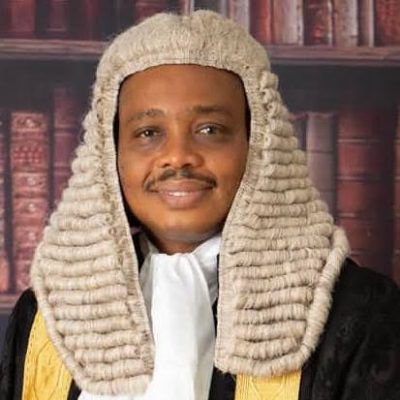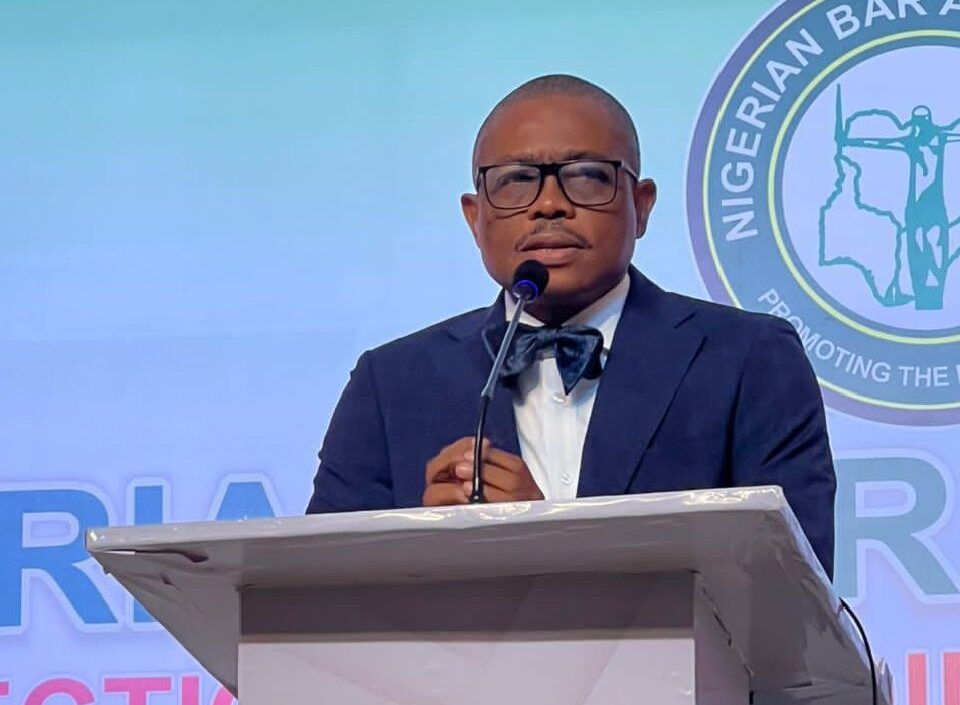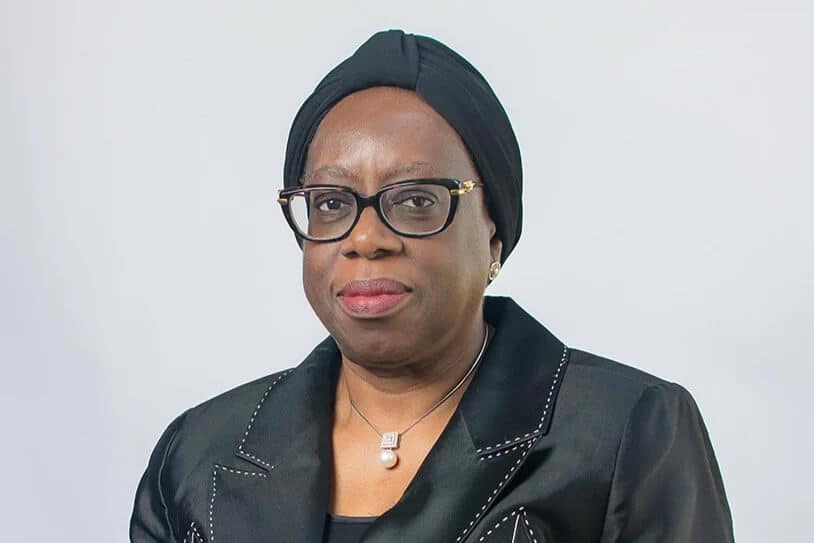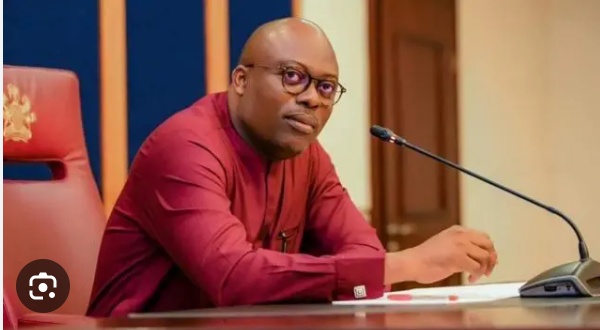JUDICIARY
Nigeria’s judiciary and underfunding: What way forward for effective justice system?

The judiciary globally has been known to be the last hope of the common man, considering the fact that the other arms of government, the executive and the legislature can decide to play politics with issues that affects the masses, but the judiciary in a sane clime is expected to be neutral and impartial in the dispensation of justice so as to ensure equality and upliftment of the rule of law.
The Nigerian judiciary is one that has been enmeshed with criticism and backlash over the years, owing to the perceived lack of independence which summarily subject it to the whims and caprices of mostly the executive arm of government by grossly violating valid court orders and which the legislature in some cases decide to navigate this part on issues of constitutional jurisdictions.
The coming to power of the present administration, and subsequent administrations since the return to civilian rule in 1999, can best be described as not been favourably disposed to the judiciary, as it has become the weeping boy within the arms of government. This can further be attested to by the invasion of the private residence of some judges not too long ago, on the alleged suspicion of corruption and the unlawful suspension and removal of the then Chief Justice of the federation, Walter Onnoghen, on non declaration of assets.
Coming on this heels, the current budgetary allocation to the judiciary like all other critical sectors of the society is one that calls for concern. According to the National Judicial Council, the paltry sum of N110 billion is nothing to write home about if the independence of the judiciary must be guaranteed.
The NJC said a situation where one agency would decide what others should get without the knowledge of its working environment was not in line with best global practices.
Barrister Ahmed Gambo Saleh, the Executive Secretary of NJC, said this when he appeared before the House of Representatives Committee on Judiciary on Monday in Abuja.
According to him, there is need for a paradigm shift in the judiciary budgeting regime, adding that there was an urgent need for increased funding for the judiciary.
Saleh said that a total of N187,945,531,476 was initially proposal for the 2021 budget operations, but was reviewed to N110 billion considering the ceiling that was given to it by the budget office which ended up allocating 0.84 percent of the budget to the Nigerian Judiciary.
He said that a total of N110 billion was appropriated for the judiciary in 2020, adding that about 75 per cent of the budget was accessed and implemented.
Saleh said that the Nigeria judiciary was in dire need of funding adding that the recent vandalism of some courts occasioned by the EndSARS protests made it more imperative for increased funding.
The Executive Secretary opined that the Supreme Court justices were recently increased by eight making a total of 20 stressing that there was a promise of a special intervention fund to enable it to function but had yet to be received.
He added that the Federal High court was also in the process of increasing the number of judges and that such exercise would come with cost on personnel and capital expenditure.
In the same vein, House of Representatives member, Onofiok Luke, the chairman of the committee, said there was need for extra budgetary allocation for the judiciary.
“If eight justices have been added, I don’t know why there won’t be increase of allocation now that the number of justices has been increased,” he said.
According to him, the destruction of courts by hoodlums brings to bear the need for the digitalisation of courts through recordings and delivery of judgments by the courts.
He said that N110 billion budget proposal in view of current reality for the judiciary was inadequate, adding that there was need for adequate funding of the judiciary for effective service delivery.
Equally, some legal luminaries have also lent their voices to what they described as poor budgetary allocation to the judiciary, particularly when viewed against the backdrop of the coronavirus pandemic that has amplified the need to expand court facilities for swift justice dispensation.
Chief Adegboyega Awomolo (SAN), said Nigeria’s post-COVID-19 judiciary requires massive investment in critical infrastructure in terms of recruitment and remuneration of judges as well as Information Communication Technology, ICT, to fast tract adjudication of cases.
He lamented that the nation’s judiciary under President Buhari’s watch had not been accorded its rightful place as an independent arm of government, adding, “The judiciary has always been at the short end of the stick. It has not found favour at all under the current dispensation.”
Awomolo further explained, “The truth of the matter is that the judiciary of the Federal Republic of Nigeria post-COVID-19 cannot be regarded as judiciary pre-COVID-19. This is because the new normal has thrown up the imperativeness of the use of information communication technology as a tool to achieving the quick administration of justice, whether criminal or civil.
“But the truth is that it appears that the executive has not realized the need to take a critical look at the gap in the infrastructure, training of personnel and the application of ICT in the judiciary.
“The allocation to the judiciary is very unrealistic. It is a repetition of what has been happening in the last four or five years. But the National Assembly still has an opportunity of improving on the N110 billion budget estimates for the judiciary in the 2021 Appropriation Bill,” he suggested.
Another Senior Advocate of Nigeria, Mallam Yusuf Ali, in a separate reaction to the new budget cycle, said “it is in the strategic interest of Nigeria and Nigerians that adequate funding for the judiciary should be a priority.”
He advised that the judiciary should stop going to the executive cap-in-hand, saying, “If you want an independent judiciary, it should be independent in the way it dispenses its own expenses and income as well as expenditure.”
In his own summation, Chief Mike Ozekhome (SAN), advised the Federal Government to ensure that the judiciary’s budget remains on the first-line-charge.
He was of the view that the judiciary should be on a first-line charge and that its allocations should be paid directly to the heads of the courts; to be disbursed directly for budgeted projects.
In view of the above positions on the state of the judiciary and its poor budgetary allocation by these stakeholders, it is imperative to state emphatically here that if the present administration of President Muhammad Buhari really want the effective Administration of the Criminal Justice Act, ACJA, the independence of the judiciary that the common man and indeed the entire Nigerians can look up to without the fear of been compromised and ‘justice for highest bidder’, now should be the time for the present administration to do the needful by not paying lip service to some issues that are begging for urgent proactive actions.
If the National Assembly can earmarked about N129 billion for the renovation of its complex, then what justification does the executive and the legislature have for not appropriating adequate amount for the smooth running of Nigeria’s judicial arm of government?
If not for anything, a well funded judiciary will ensure the judges in all federal government courts are well and adequately taking care of in term of training, ICT compliance in the dispensation of justice and a conducive working environment, devoid of depending on graft in the course of discharging their constitutional duties.
The biggest challenge the Nigerian Judiciary will be facing is battling how to cater for the newly appointed Justices of the Supreme court including the remaining one to make the constitutional requirement of 21 Justices.
Aside, any moment from now the court of Appeal bench will be getting additional 20 Justices and 20 more at the bench of the federal High court.
The question is can the budgetary provision of the Nigerian Judiciary cater for the housing, allowances, training, official cars and salaries for these judges?
Certainly, the Nigerian Judiciary is crippled by under- Funding.
Atavti, is the Judiciary Editor of Nigerian Pilot Newspaper in Abuja
JUDICIARY
Nigerian Bar Association President, Afam Osigwe SAN, Lauded For Transformative Leadership

From Hassan Taiye
The Nigerian Bar Association (NBA) President, Afam Osigwe, SAN, has been praised for his visionary leadership and transformative impact on the legal profession. Since assuming office, Osigwe has demonstrated a steadfast commitment to justice, human rights, and the rule of law.

According to Barrister Hamza N Dantani, Osigwe’s leadership has been marked by bold initiatives, fearless advocacy, and groundbreaking reforms. He has restored the NBA’s traditional role of holding leaders accountable and promoting the rule of law, challenging unconstitutional actions and human rights abuses.
One of the notable achievements of Osigwe’s presidency according to Hamza, is the repositioning of the Institute of Continuing Legal Education (ICLE). The introduction of a mandatory Continuing Professional Development (CPD) regime has elevated professional competence and aligned the Nigerian Bar with international standards.
“Osigwe has also been instrumental in promoting human rights and public interest litigation. He has spearheaded campaigns against arbitrary arrests, electoral malpractice, and anti-democratic legislation, and established regional litigation committees nationwide”
“The NBA President’s commitment to technology and innovation has also been noteworthy. The launch of the Digital Annual Practice License and the digitization of the Letter of Good Standing have marked a new era in transparency and efficiency within the profession”
He further stated that ” Osigwe’s administration has prioritized the growth and success of young lawyers. The Nigerian Bar Association–Young Lawyers Forum (NBA-YLF) has introduced tailored mentorship, support programs, and funding initiatives to address the challenges faced by young lawyers”
“The 2025 NBA Annual General Conference, organized under Osigwe’s leadership, was hailed as one of the most successful in the history of the Association. The conference equipped lawyers with practical strategies to navigate contemporary legal and societal challenges.”
“Engine’s leadership style has been described as inclusive, humble, and genuinely committed to serving the legal profession. His detribalized approach has earned him respect across regions, political divides, and professional ranks.”
He expressed optimising that ” As Osigwe continues to lead the NBA, his legacy is expected to leave a lasting impact on Nigeria’s legal landscape. His commitment to justice, human rights, and the rule of law has restored the NBA’s image as the nation’s conscience”.
JUDICIARY
Odinkalu Applauds CJN Kekere-Ekun for Sanctioning Errant Judges

Professor Chidi Odinkalu, a legal scholar and judicial reform advocate, has praised the Chief Justice of Nigeria (CJN), Justice Kudirat Kekere-Ekun, for her decisive action in addressing misconduct within the judiciary.
The National Judicial Council (NJC) recently sanctioned five judicial officers for professional breaches, including age falsification and other misconducts. The decisions were made during the NJC’s 107th meeting held on November 13 and 14, 2024.
Judges Sanctioned for Misconduct
Among those sanctioned were:
- Justice Chukwuemeka Chikeka, Chief Judge of Imo State, who was recommended for compulsory retirement effective October 27, 2021. Justice Chikeka was found to have falsified his date of birth, with inconsistencies noted between 1956 and 1958. He was also directed to refund salaries and allowances received after his official retirement date.
- Hon. Kadi Babagana Mahdi, Grand Kadi of Yobe State, was also recommended for compulsory retirement after discrepancies in his date of birth were discovered. Records showed three different birth dates, while his actual year of birth was determined to be 1952. The NJC found that he should have retired 12 years ago and ordered him to refund salaries and allowances received during this period.
- Justice G.C. Aguma of Rivers State High Court and Justice A.O. Nwabunike of Anambra State High Court were suspended from duties for one year.
Odinkalu’s Commendation
Reacting to the NJC’s decision, Professor Odinkalu commended the Chief Justice of Nigeria for her swift and decisive response.
“Madam CJN, Kudirat Kekere-Ekun, has acted swiftly on this matter of age falsification by the Chief Judge of Imo State. She has done the right thing the right way,” Odinkalu stated.
He expressed hope that this move would signal a new era of improved judicial standards under Kekere-Ekun’s leadership of the NJC.
NJC’s Commitment to Judicial Integrity
The NJC emphasized its zero-tolerance for misconduct, reiterating its commitment to upholding integrity within the judiciary. The council urged judicial officers to adhere strictly to professional and ethical standards.
The actions taken are seen as a bold step toward restoring public confidence in Nigeria’s judicial system.
JUDICIARY
Fubara Warns Judges on Conflicting Judgments

Rivers State Governor, Siminalayi Fubara, has called on judges and lawyers to avoid delivering conflicting rulings, which he says undermine justice and governance. His warning follows conflicting judgments that nearly disrupted the local government election in the state.
Speaking at the 2024/2025 Legal Year ceremony in Port Harcourt, Fubara criticized legal professionals who compromise their integrity for personal gain. He emphasized the sacred role of the judiciary in upholding justice and urged judges to remain steadfast in truth.
“You are the god that we are seeing. Your position is to stand and defend us,” Fubara stated, adding that those who compromise justice would face severe consequences, both legally and morally.
Fubara praised the Rivers State judiciary, particularly the High Court, for their support in maintaining stability despite external pressures. He acknowledged threats and assaults faced by judicial officers but encouraged them to remain resolute in their pursuit of justice.
In his sermon, Bishop Rt Rev Wisdom Budu Ihunwo echoed the governor’s concerns, highlighting the negative impact of conflicting judgments on Nigeria’s unity and governance. The bishop warned that those responsible for such actions would eventually face divine punishment.
Governor Fubara concluded by emphasizing the need for strong institutions to safeguard democracy and ensure societal prosperity.
-

 Uncategorized5 years ago
Uncategorized5 years agoFG, states urged to harness flooding for ranching, others with technology – Agbaje
-

 Headlines10 years ago
Headlines10 years agoBreaking: EFCC seals Borno House of Assembly, as Hon members take to their heels
-

 News11 years ago
News11 years agoNigeria Security Operatives Stage Manhunt For Homosexual Perpetrator
-

 News9 years ago
News9 years agoHow 21-year-old Girl fled community over accusation of lesbianism
-

 News10 years ago
News10 years agoYobe Gov Moves Against Deputy
-

 Opinion7 years ago
Opinion7 years ago7 signs she has friend zoned you
-
Technology4 years ago
Online job placement company headhunts women
-

 Headlines10 years ago
Headlines10 years agoBorno Dep Gov Abducts Another Church Leader







